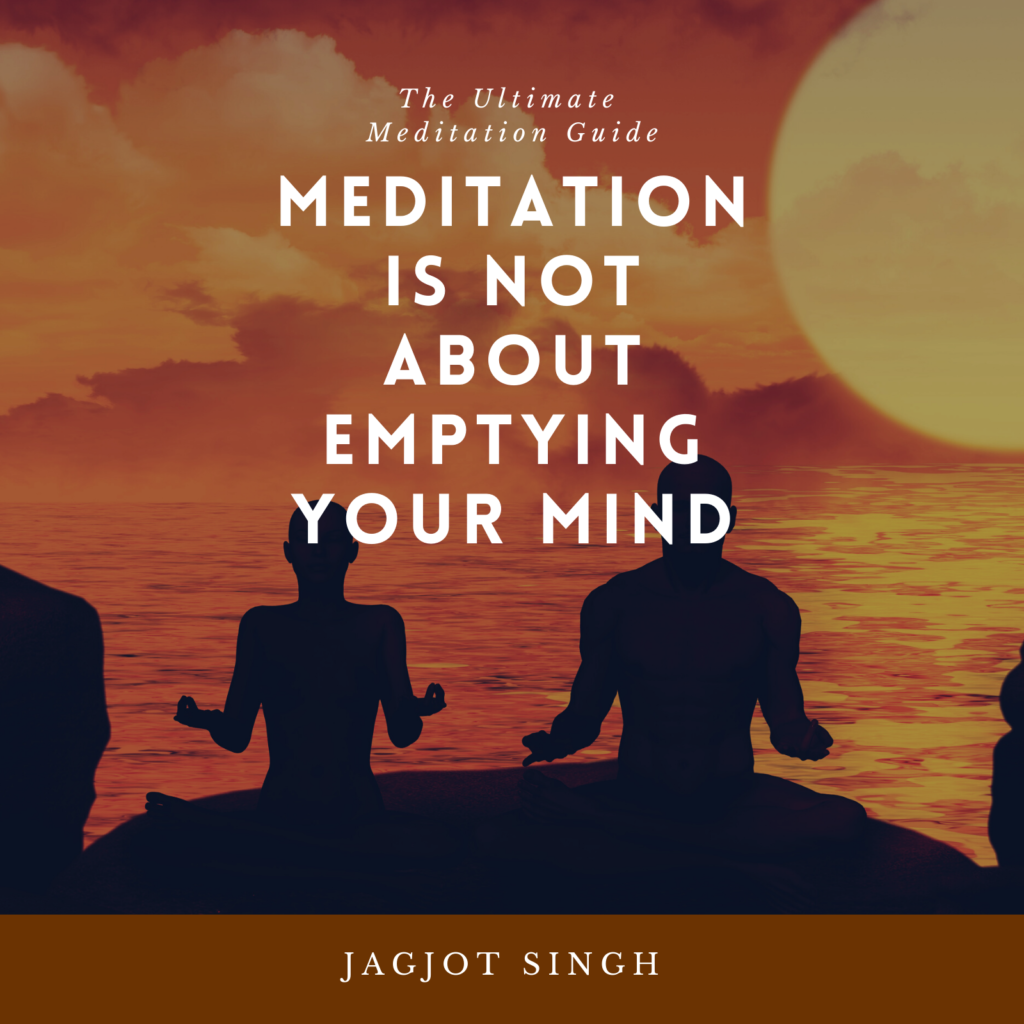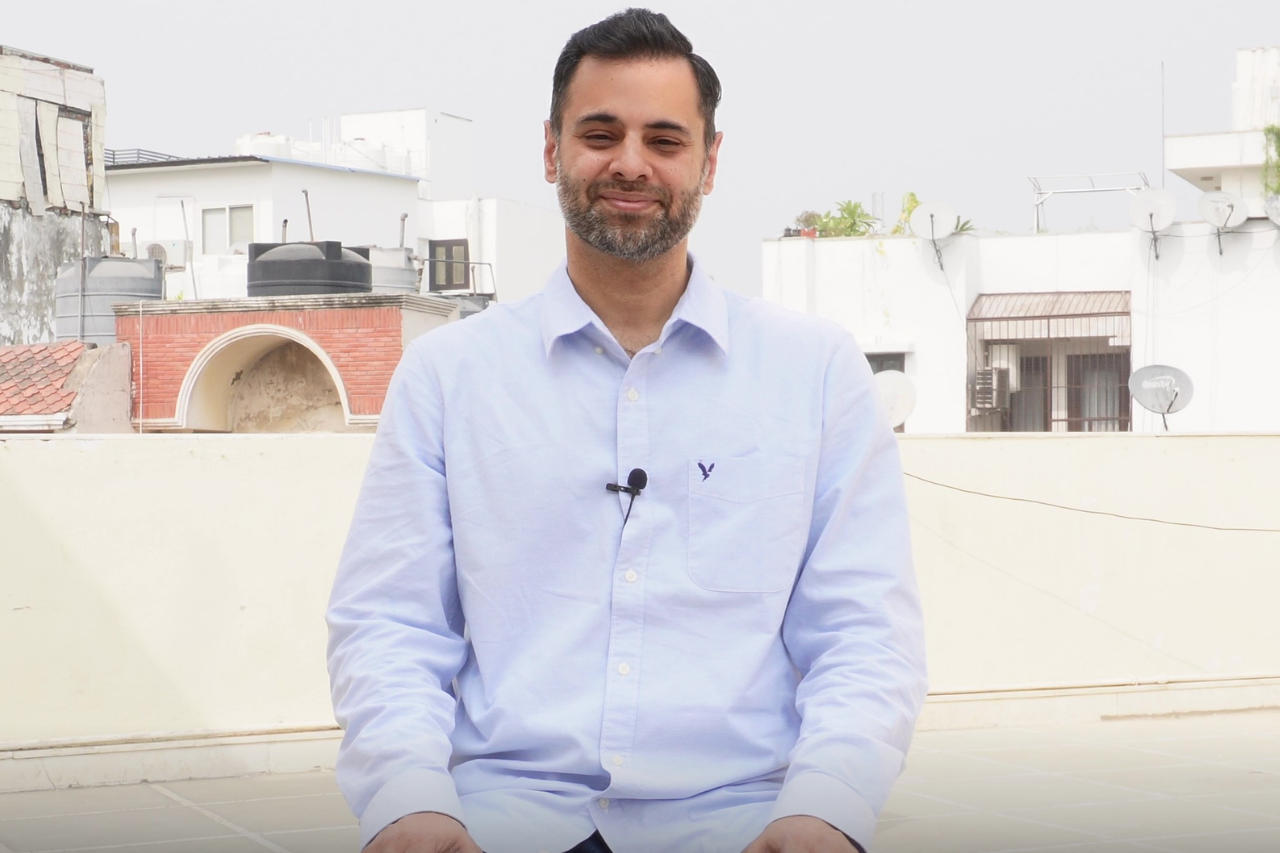It is not uncommon to experience weird sensations after practicing meditation. These can be troubling thoughts or memories that pop up randomly out of nowhere. And sometimes, these memories can be extremely uncomfortable, causing overwhelm. Why does it happen? What can we do about it? Let’s find out.
When I started meditation a couple of years back, my mind was not as calm as it is now. I used to be anxious, stressed, and depressed most of the time, even though I had the so-called perfect life – a well-paying job, a loving wife, and two amazing kids; what more could I ask?
Yet, a volcano was building up inside me, and I was scared that I might end up hurting someone someday. I didn’t want to be that person. I could not contain my restlessness anymore, so I started meditating.
Raised in the traditional eastern culture, I was familiar with meditation. There was no shortage of information, and I did not have to undertake a formal meditation course to get started.
I sat down, closed my eyes, and started meditating. And there it was, the most incredible peace and bliss that I had hoped. For a couple of months, every day, I experienced a restful mental state during meditation. Any time my anxiety came back, I used to suspend all activities and sit in meditation immediately.
Until came a time when I started reliving my painful childhood memories every time I sat down for meditation. I was confused. Meditation was supposed to calm my mind, and now I was reliving some of my worst childhood traumas. It was something that I didn’t even want to think about consciously.
It made me restless and anxious, and I feared closing my eyes. I had no clue why this was happening. From where these long-lost memories were entering my mind? And why?
Our mind is a multi-layered structure where most of our thoughts, feelings, emotions, memories, and other tendencies and traits remain in oblivion (for more information, read Shadow Work Guide). During childhood, we push a lot of uncomfortable emotions that we don’t want to deal with in these parts of the mind.
Emotional repression is one of the maladaptive behaviors children use as a defense mechanism against trauma and abuse. Children do not have the cognitive abilities and resilience to process afflicting emotions, so they push that content into their unconscious parts in order to escape the pain.
However, whatever we push away from our conscious mind settles down into the unconscious mind and creates discomfort time and again. The worst part is that we are not even consciously aware of the exact feeling or emotions that are causing discomfort at the moment.
Our mind keeps a record of every piece of information that we go through. People usually begin meditation, intending to calm the mind in the hope of avoiding the pain of going through troubling emotions. I never wanted even to acknowledge, let alone confront my childhood memories.
But meditation does not work that way. It opens up the entire mind. It starts with the conscious layer by witnessing the troubling thoughts and feelings and goes into the unknown parts as we go deep in our meditation practice. As we meditate more, we create a gap between our thoughts and our reaction to them.
This process reduces the intensity of emotions carried by afflicting thoughts. The more we watch the mind, the calmer it becomes until we reach a place of restful calm where the thoughts are running as threads in the background but have no power to influence or create any discomfort in us.
After a while, when the conscious mind is clear, stuff from within the subconscious and unconscious arises as painful thoughts in the conscious mind. Our unconscious is the dominant part of our mind. It is extremely powerful, and there can be no healing if we avoid it.
We cannot directly know the contents of our unconscious mind. We can only indirectly deduce by examining the nature of thoughts that arise within our conscious mind.
The reason why we feel weird after meditation sometimes is that it creates a space within our conscious mind for the content of the hidden layers to appear. Your awareness is expanding and reaching vast depths of your mind. Some of that content is a part of you that wants to be discovered, irrespective of the pain, weirdness, and discomfort.
Initially, this integration seems painful, but as we begin noticing the repeating pattern of our thoughts and how they affect us, we create a sense of separation from them. That’s when real healing happens.
We don’t feel these childhood memories when we’re not meditating because we continuously distract ourselves with multiple jobs, tasks, distractions like addictions, food, smartphones, and social media.
But when there’s no distraction and you’re alone with your mind, these thoughts begin to bubble up into your conscious awareness. If you think about it, it’s a purging process. All that painful stuff needs to come to your conscious mind before you can finally be free from it.
If you’re extremely sensitive or have severe psychological ailments, I would not recommend practicing meditation by yourself. Take the help of an experienced meditation teacher who can guide you with loving, compassion, and understanding. Don’t feel shy in taking help like therapy and do meditation only as a supplementary practice.
When you meditate, you become the observer of your bodily sensations and the mind. You realize that you’re not your thoughts or the mind, but the “self” that is aware of everything the consciousness creates. You are the pure awareness or the witness that is the pure being. You’re beingness, or isness, is the absolute reality.
Meditation enables us to go beyond our thought and experience the ultimate reality. You’ll never be able to stop your thoughts. And why should you? Not all thoughts are negative. Positive thoughts enable growth and fuel creativity and innovation.
But for positive thoughts to emerge, your need to create some space in your mind for them. Meditation clears your mind by merging you into the oneness of your being.
Final Thoughts
I can’t think of a single person who hasn’t faced some trauma during his/her childhood. It is an unfortunate reality of life that none of us can escape unscathed.
At some point in childhood, we experience some form of abuse like shame, guilt, contempt, ridicule, humiliation, emotional invalidation, parentification, etc., from our caretakers, teachers, friends, or relatives.
As children, we cannot analyze and understand a situation logically, so we internalize a message that whatever happens is our fault. For example, if your parents frequently fought in your presence, you blamed yourself. How else would you have reconciled in such a situation?
You felt a mixed bag of emotions, especially shame, when your parents reprimanded you:
- For not performing well in studies.
- For not excelling in sports and arts.
- For rebelling against wearing clothes of your choice, and eat foods of your liking.
- For not conforming to their religious beliefs and ideologies.
- For not acknowledging their martyrdom and sacrifices made raising you into the “perfect human being” that you are today.
- For asserting your thoughts and opinions that ran counter to their beliefs.
- And most importantly, (this one you’re perhaps not even aware of right now) for not emotionally comforting them when they were upset.
Most people think that it’s the only physical abuse that causes damage. More often than not, it’s the psychological abuse in the form of shame, guilt, and humiliation, which is far more damaging than physical abuse.
As I mentioned earlier, children suppress and repress the emotions that arise because they don’t want to deal with them in such situations.
Meditation brings out these deeply buried emotions and childhood memories from the depths of our subconscious and unconscious, and that’s why it feels uncomfortable.
If you’re undergoing that stage, you need to be overly compassionate with yourself. It requires a lot of self-compassion and self-love because childhood memories can be harrowing.
In the outer world, we learn to face our problems upfront and deal with them. Why should the rules be different for the inner world? Why are we so scared to meet our inner-child?
Rather than hiding and playing the victim, we should learn to acknowledge our hidden afflictions and take complete responsibility for them.
We can fully heal only by facing our inner demons and not avoiding them. Fortunately, meditation does that for us. No matter how uncomfortable you may feel in the early stages, consistently sticking to your meditation practice, you will eventually reach that place of abiding happiness, love, and bliss.



